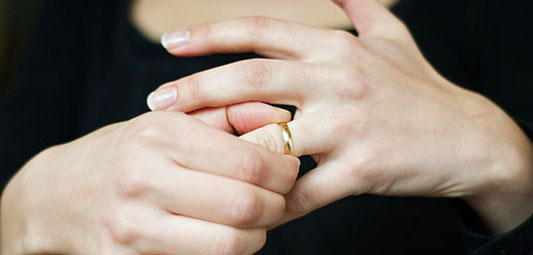
A divorce can bring many different emotions flooding to the surface: Anger, fear, and doubt may plague your thoughts. Depression and anxiety are common side effects of divorce. Separating from the partner you agreed to share your life with can be a catalyst for a depressive episode. This is a clinical event, so you shouldn’t dismiss it as a case of the blues. But how do you know you have depression, and what can you do to prevent it?
Write a Goodbye (and Hello) Letter
You’ve probably heard of the five stages of grief – denial, anger, bargaining, depression, and acceptance. The crucial step between depression and acceptance is acknowledging that the divorce is real and the marriage you dreamed about and held onto for so long is gone. Help yourself come to terms with the loss by writing a final letter that bids adieu to your old life. Acknowledge what you could be losing – a partner, financial security, a beautiful home.
After you write that letter, draft another one that says hello to your new life: What will you be gaining? Independence, emotional stability, a sense of self? Writing these gains down can help bring things into perspective. You’re losing some things, yes, but you’re also facing new opportunities.
Tune into Your Internal Conversation (and Then Dismiss it)
Chances are you’re not feeling too good about yourself post-divorce. Your internal conversations are probably less than complimentary: What did I do wrong? Why can’t anyone love me? Will I be alone forever? These conversations aren’t productive; in fact, they’re likely to sink you further into depression. Pushing those feelings deeper into your subconscious doesn’t work, either. Allow yourself to listen to those negative thoughts, and then combat them with positive name calling. Think about the qualities that make you who you are, and accept that you have plenty of people in your life who find those qualities endearing.
Practice Self-Care
Take care of your mind, body, and spirit. Take a shower every day, and hit your favorite gym class on the way to work. Buy yourself a new outfit that makes you feel confident or book a mani/pedi. Make dates for dinner or drinks with friends, go see a movie, or take in a football game. The more time you spend taking care of yourself and socializing, the better you’ll feel. You may feel like moping around at first, but getting out of your own head is beneficial.
Know the Signs
Keep track of your feelings so you know when you’re just in “a funk,” and when it’s something more serious. Bouts of clinical depression simply can’t be cured with a plucky good attitude and a can-do spirit. Be on the lookout for some warning signs:
• Decreased energy.
• Trouble sleeping.
• Feelings of worthlessness.
• Difficulty concentrating or making decisions.
• Appetite or weight changes.
• Thoughts of suicide.
If you experience any of these symptoms, get in touch with your doctor immediately. He or she can provide you with treatment options that go above and beyond basic self-care. If you have a family history of depression or anxiety, you may be more likely to need medical intervention.
Finding the Right Professional to Handle Your Divorce
Having a competent and experienced divorce professional guiding you through or completely handling your divorce can go a long way to establishing "peace of mind", and frankly helping you maintain your sanity throughout the divorce process. A divorce is more often then not one of the more difficult and stressful time periods in a person's life, without the proper aid and advice an already difficult time going through the divorce process can quickly turn into nothing less then a nightmare. There are numerous divorce support and assistance options available to take advantage of and use for your own benefit if your willing to put in the time and effort. There is a wide range of different types of divorce help options, including divorce support groups, mediation, divorce lawyer, and more, all ranging from very affordable to expensive depending on how much you can and want to invest in your divorce aid.



























